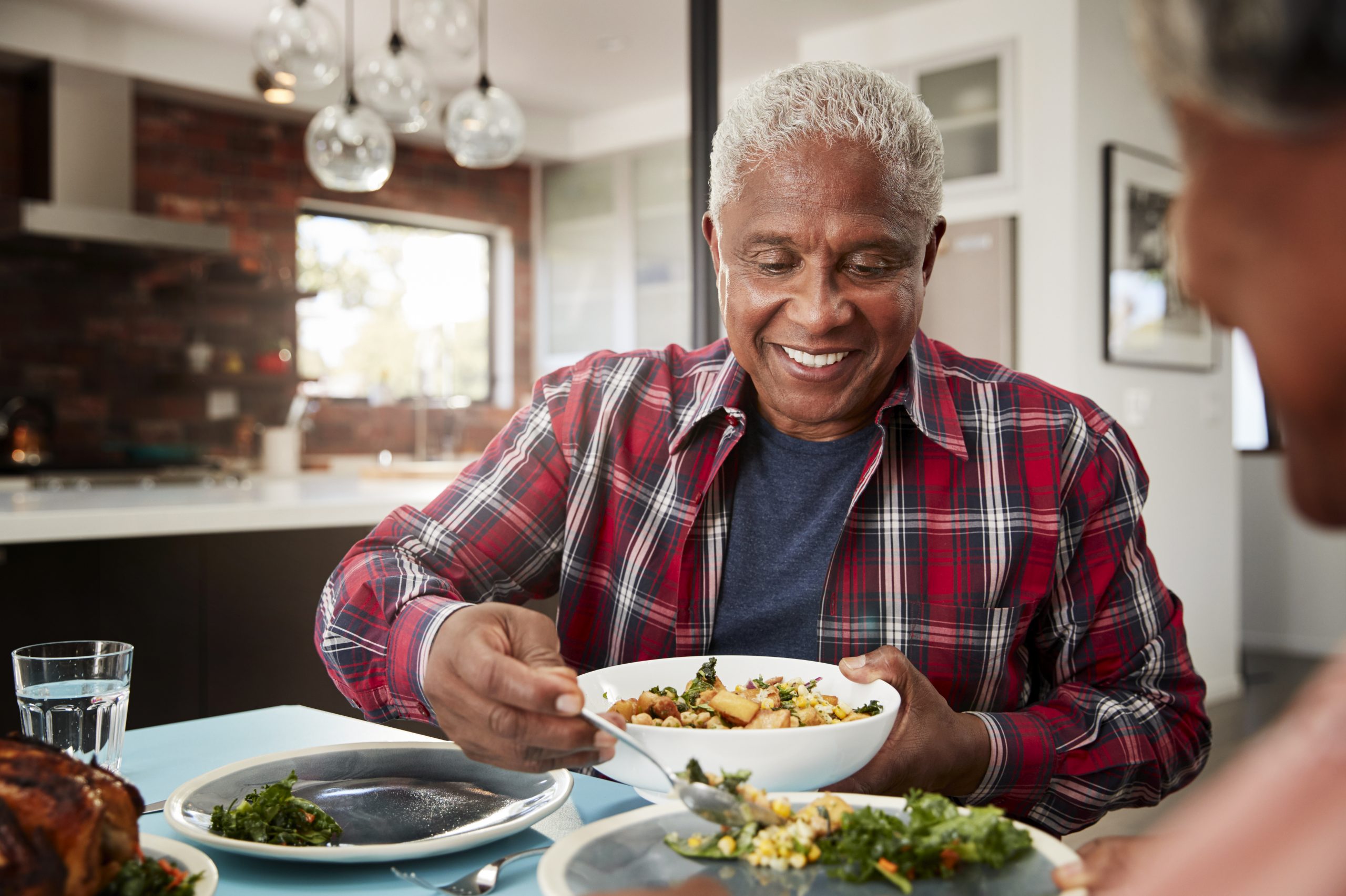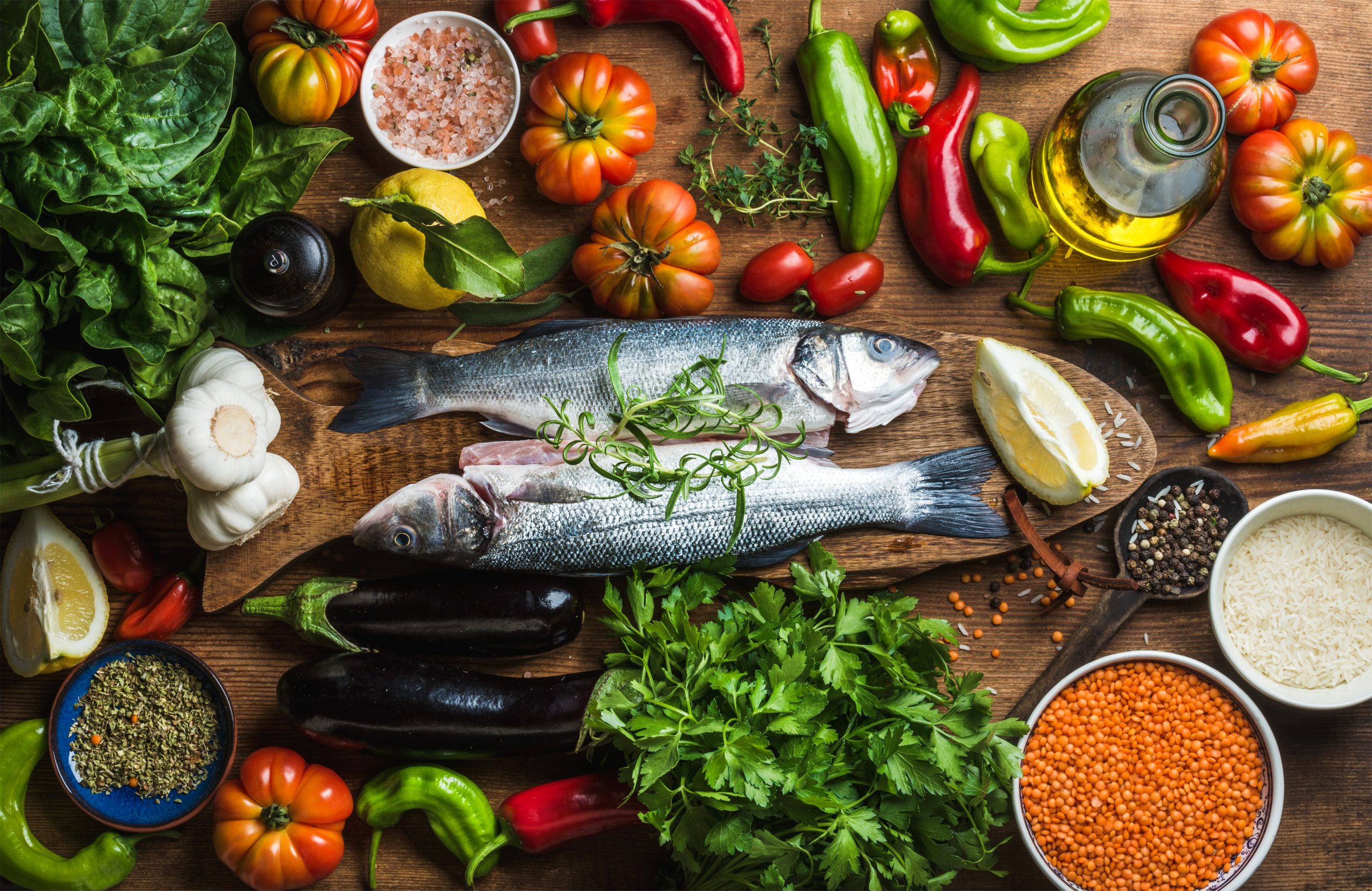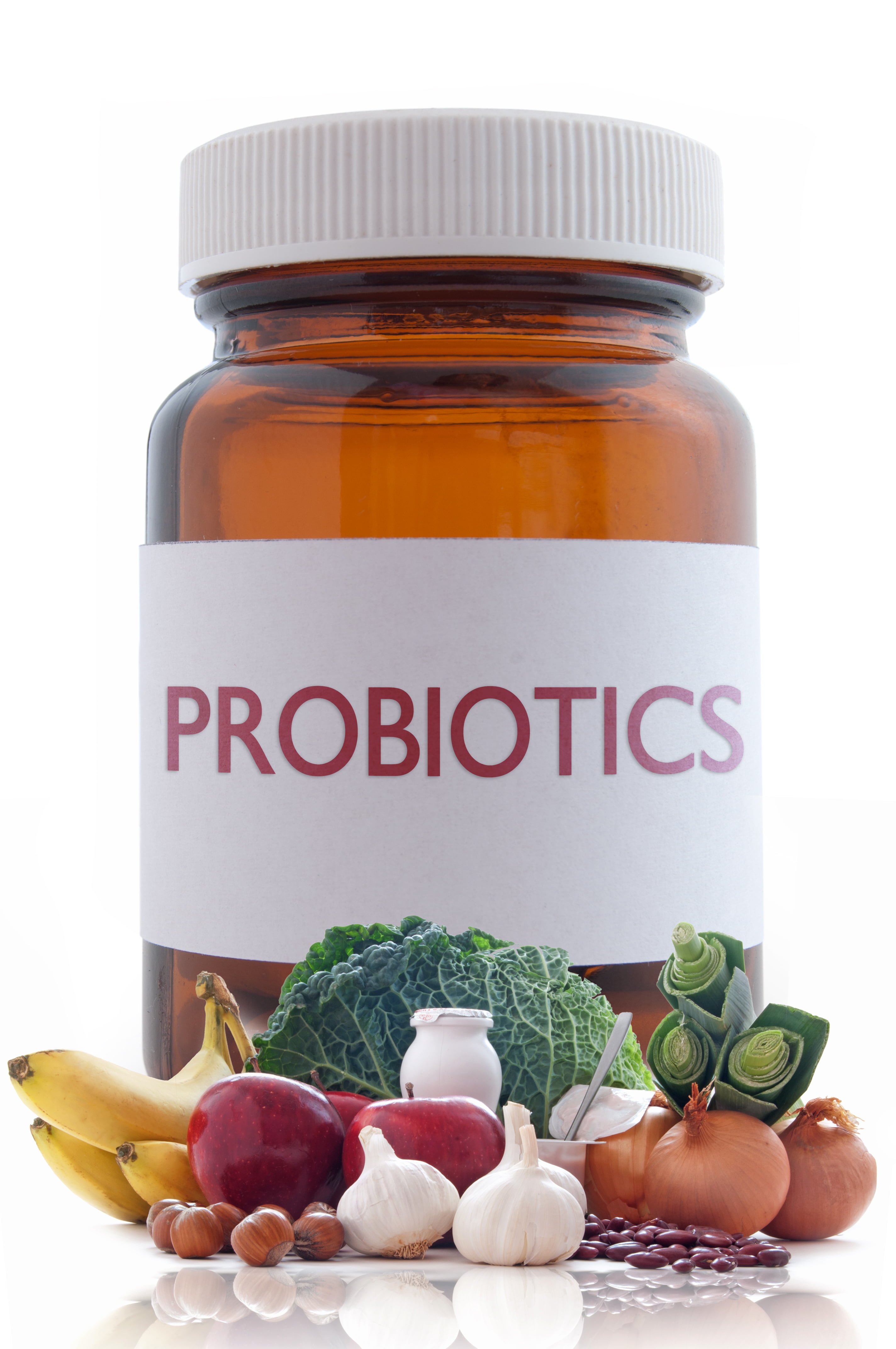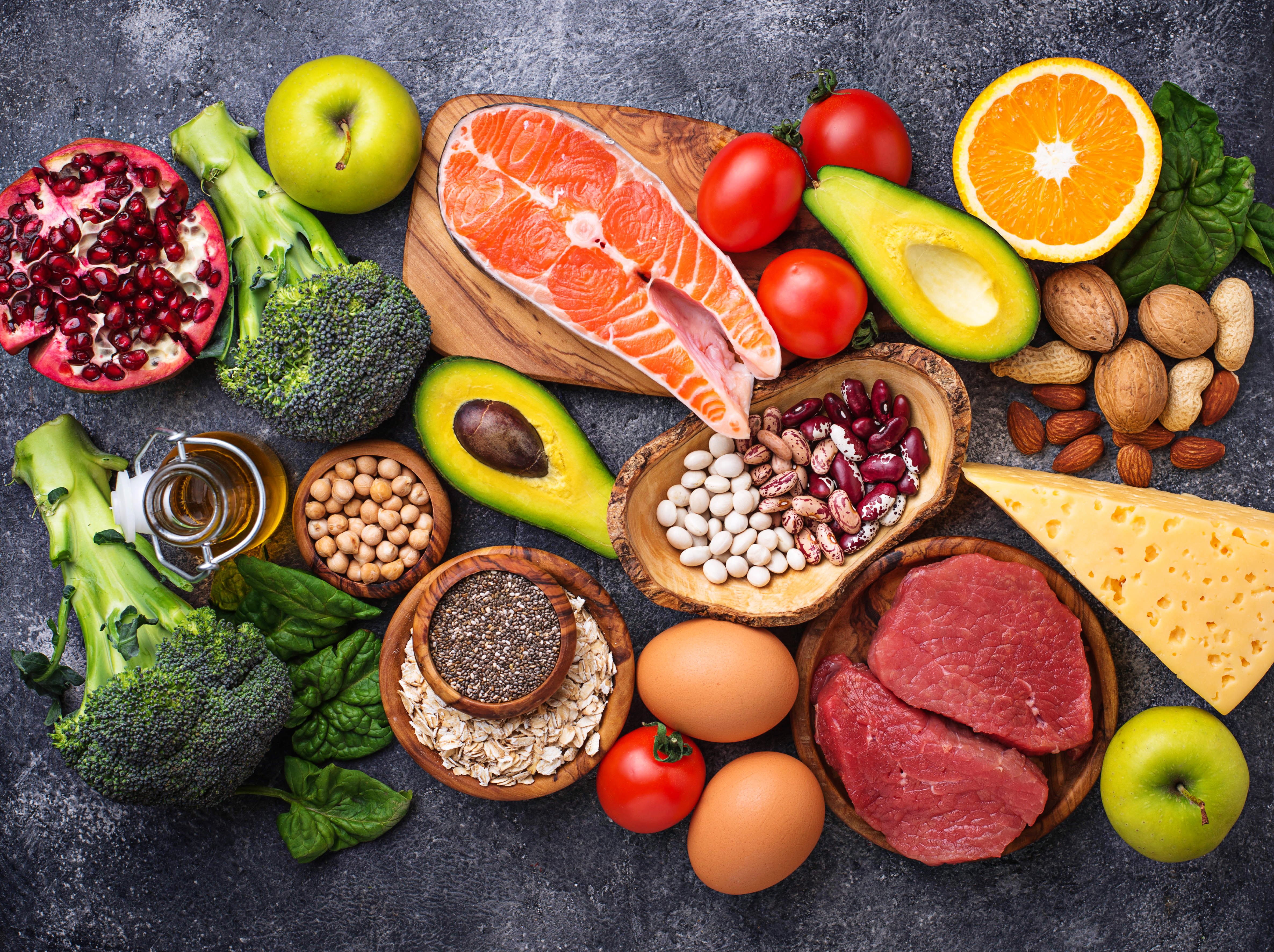
The Importance of Healthy Eating for People with Parkinson’s
A healthy diet is vital for everyone and especially for people with Parkinson’s disease (PD). Not only is a healthy diet associated with improved brain health and increased energy levels, there are many specific PD symptoms that can be improved by choosing the appropriate foods to eat. For example, good nutritional choices can help achieve or maintain normal body weight, alleviate delayed gastric emptying, and reduce constipation.
In addition, knowing how food and your medications interact can be very helpful. This will allow you to choose your foods correctly and maximize the effect of your medication doses.
More advanced PD symptoms such as swallowing difficulties can impact your ability to maintain good nutrition. Working to improve your ability to swallow can therefore go a long way to maintaining nutrition and general health.
The good news is that your diet and nutrition is something you have control over. The information, fact sheet, common questions, and blog posts below can help educate and empower you to take steps toward healthier, more nutritious eating.
Learn more about Parkinson’s disease and the gut
Common PD symptoms and how nutrition plays a role
Weight loss
Weight loss in PD can be due to decreased appetite, increased energy expenditure, or other symptoms like swallowing difficulties and slowed gut transit. To combat this, it’s important to address potential causes like depression or medication side effects, and consult a dietitian for high-calorie, nutritious food recommendations. Swallow evaluations by a speech language pathologist and adjustments to PD medications can also be helpful in managing weight loss associated with PD.
Delayed gastric emptying
PD can slow down food movement through the stomach, causing discomfort, nausea, bloating, and affecting appetite and medication absorption. This condition, known as gastroparesis, will require dietary changes to manage properly. In addition, it may require special medications and a gastroenterologist’s care to improve symptoms and ensure effective medication use.
PD can slow down food movement through the stomach, causing discomfort, nausea, bloating, and affecting appetite and medication absorption. This condition, known as gastroparesis, may require special medications and a gastroenterologist’s care to manage symptoms and ensure effective medication use.
Learn more about delayed gastric emptying and other gastrointestinal issues in this Q+A
Constipation
Constipation is a common non-motor symptom of PD which can occur early in the disease due to slowed food transit in the large intestine. Prevention includes a high-fiber diet (25-35 grams/day), adequate fluid intake, and possibly medications for management. It’s important to discuss this with a neurologist and/or gastroenterologist to avoid serious complications.
The protein effect
Dietary protein can interfere with the absorption of levodopa, a common medication for PD motor symptoms. This does not happen to everyone, but those who experience this symptom may need to separate medication doses from their protein intake. One strategy to maximize medication effectiveness is to consume most protein at the end of the day. Consult a doctor or dietician for a balanced diet that doesn’t hinder medication.
Manage a levodopa prescription while maintaining good nutrition
Introducing an easier way to track your symptoms and manage your care.
Don’t want to download the app? Use the non-mobile version here.
Difficulty swallowing (dysphagia)
People with Parkinson’s disease (PD) may experience difficulty swallowing, leading to risks like choking and inadequate food intake. Inadequate food intake can lead to poor nourishment, which can in turn lead to a worsening of motor symptoms and increased weakness. Consult a doctor for referral to a speech and language pathologist. A swallowing evaluation and therapy can improve function and suggest suitable food choices to make eating safer and more enjoyable.
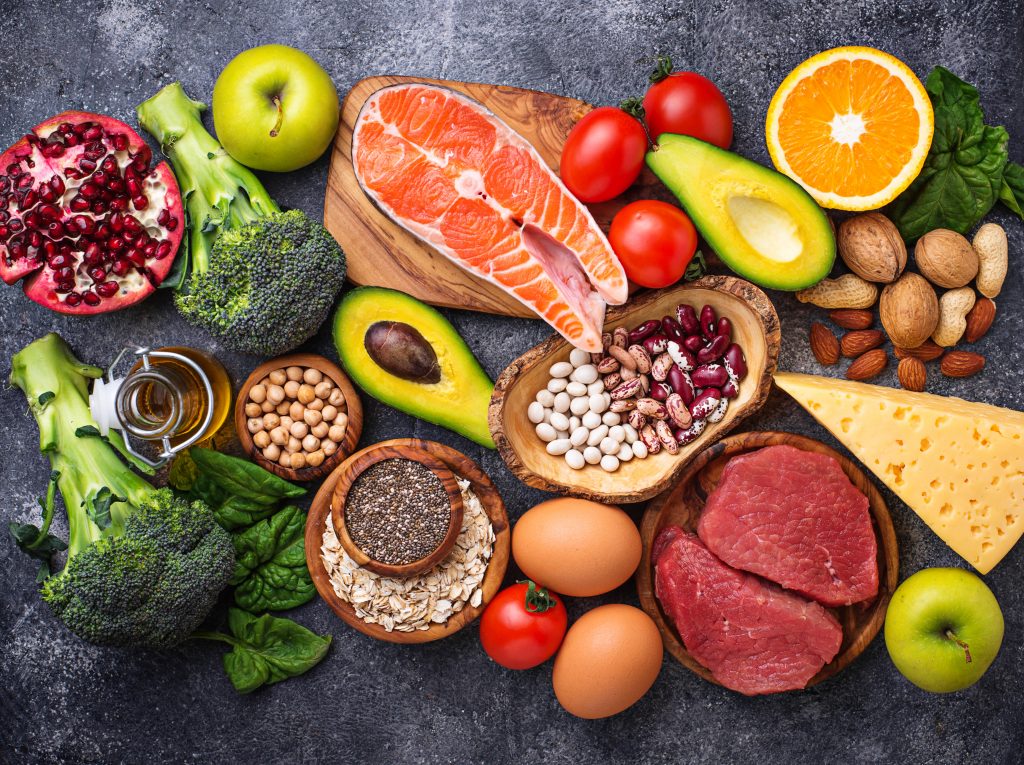
Download Our Nutrition Fact Sheet
Good nutrition is essential for living your best life, especially if you have Parkinson’s disease. Check out our nutrition fact sheet for tips on eating a balanced diet and staying healthy.
Common Questions About Parkinson’s Diets and Nutrition
Is there a best diet for Parkinson’s disease?
There is no set diet for people with Parkinson’s, as everyone’s nutritional needs are different. However, some diets are commonly discussed favorably, such as the Mediterranean and MIND diets.
- Mediterranean diet — traditionally eaten in Mediterranean countries characterized by large amounts of plant-based foods including vegetables, fruits, whole grains, legumes and nuts, moderate amounts of low-fat proteins such as chicken and fish, and fats centered around olive oil.
- MIND diet — Mediterranean diet and the DASH (Dietary Approaches to Stop Hypertension) diet, which together is referred to as the MIND diet (The Mediterranean-DASH Intervention for Neurodegenerative Delay).
A recent study of people with PD who followed the MIND and Mediterranean diets—rich in vegetables, fruits, whole grains, and low-fat proteins—suggests that following these diets before PD is diagnosed may delay the onset of PD symptoms by several years.
The most popular diets, and their effect on those with Parkinson’s disease
Are there any foods to avoid with Parkinson’s disease?
For people taking levodopa, a common PD medication, it’s important to manage protein intake. Levodopa competes with certain amino acids in protein-rich foods for absorption, which can reduce the medication’s effectiveness for some people. Adjusting the timing of protein intake or balancing protein throughout the day can help manage this. Additionally, iron supplements can interfere with levodopa absorption, and high vitamin B6 levels might affect the medication’s effectiveness.
Beyond medication conflicts, there are other foods and supplements that may need to be avoided based on your particular clinical situation.
Read more about avoiding certain foods and supplements
Should I consult with a dietician or nutritionist?
If you have concerns about diet or nutrition, or simply want some assistance developing the healthiest diet given your particular lifestyle and circumstances, you may want to consult a dietitian or nutritionist. These terms are often used interchangeably, but there is a difference. Registered dietitians are regulated and must meet certain educational and professional requirements before they are able to use the title. Anyone can call themselves a nutritionist, even if they have no special education or certification in the field. Check with your physician, as they may know someone who specializes in nutritional issues related to PD.


